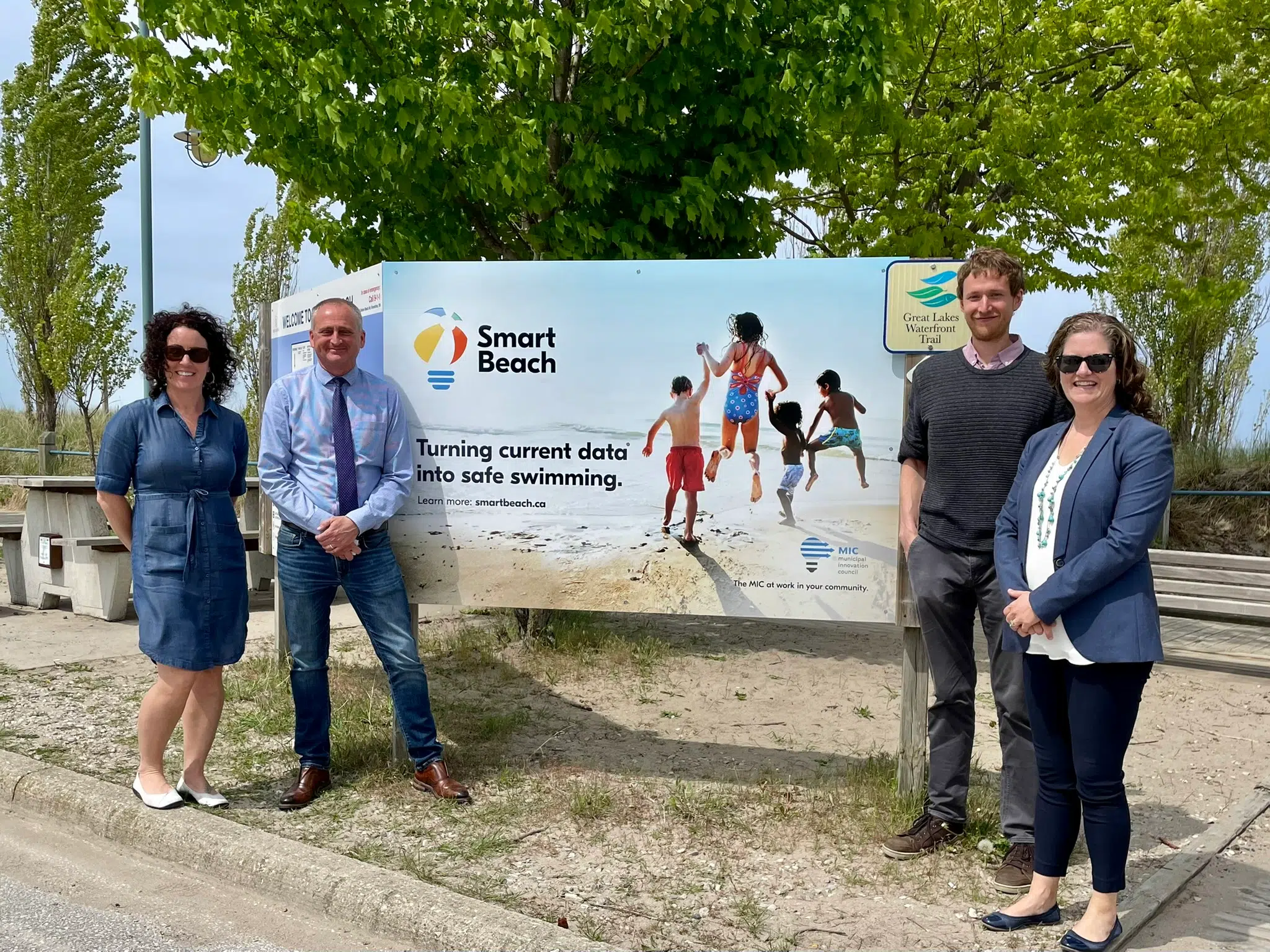The Municipal Innovation Council (MIC) is deeming the first year of the Smart Beach project in Kincardine a success.
This three-year project administered by the MIC, is looking to develop a real-time warning system to provide beachgoers with information on local water conditions to improve safety. These include rough surf, and the presence of rip currents.
The project was announced earlier this year for Station Beach.
Over the summer, MIC says the Smart Beach team collected wave, current and wind data using a Real-time Aquatic Ecosystem Observation Network (RAEON) buoy from the Great Lake Institute for Environmental Research at the University of Windsor.
Cameras collected images which will help the team understand how wave conditions impacted how people used the water and if beach access strategies would promote safe waterfront activities.
University of Windsor Dean of Faculty of Science and lead researcher Dr. Chris Houser says, “we saw strong public engagement as our team surveyed beachgoers and worked closely with partner groups and the Municipal Innovation Council – and we are in good shape to move into year two of our research.”
This winter, researchers will take the data collected to train a machine learning model to understand and predict when waves and rip current form at Station Beach.
Next year the team will be expanding on the project.
They will be testing a communication tool to provide real-time information on swimming conditions and warn people of hazards, build on the smart beach awareness and education campaign, send out a RAEON buoy at the same location to collect more data, install another camera system by the Kincardine pier to collect data, and potentially expand to another beach.







